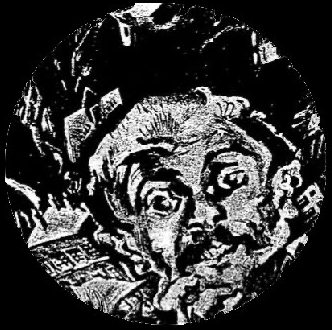LOST CAUSE SAMIZDAT
organ of venom & eternity

Lost Cause Samizdat is an anarchist samizdat press dedicated to self-publishing writing that evokes the delirious, perverse, lawless horizon of what we call vagabond poetry.
Vagabond poetry…
- embodies lawlessness, depravity, insurrection, and willful autonomy.
- associates official Poetry and Literature with the most ignoble attempts to imprison words in libraries and shape them into commodities, thereby rendering them harmless and anodyne. conversely, vagabond poetry seeks to annihilate all institutions—political, cultural, aesthetic, and moral (along with their attendant roles and structures)—as part of an incendiary frenzy directed at all forms of domination and subordination.
- rejects the economistic imperatives to reach the largest possible audience and utilize digital means to make publications easily available to all curious parties. all our texts appear in small print runs — as necessitated by both our hands-on approach to publishing and our preference for reaching passionate and discerning readers. LCS publications are not available digitally (at least for now) and can only be acquired by direct correspondence. this is to extricate our publications (at least partially) from the cold exchange of impersonal data characteristic of the internet, as we seek more immediate relationships with those reading our texts.
- exudes spleen toward the myriad of institutions and behaviors which consolidate and uphold law, authority, slavery, economism, technocracy, war, moral piety, spectacular society, and the plethora of disciplinary/domesticating impulses endemic to this society.
- recognizes the representational dimension of language as among the most insidious means of domination — provided we reify these structures into deterministic, binding descriptions of essence, rather than treating them as contingent means for touching the world around us. accordingly, vagabond poetry assiduously probes the indistinct, polysemic threshold of representation while affirming truth, identity, and value only in the most limited and transient senses.
- conceives of poetry not as a class of literary artifacts manufactured by specialists for circulation in the market and/or communicating the artist’s expression and vision, but rather as an all-encompassing lived practice which playfully blurs the lines delineating forms and genres while annihilating the distinctions between art, revolt, and everyday life. While vagabond poets may excrete recognizably poetic fragments from time to time, they acknowledge no obligation to produce any such artifacts. They deny all imperatives toward originality, sophistication, or social utility. They may even go so far as refusing to create distinct artistic objects appreciable by others entirely! Consequently, vagabond poetry often makes use of plagiarism or expropriative measures, tends not to look like the kinds of poetry we recognize as such, and may in fact look like nothing more than poets living their lives.
- audaciously & unhesitatingly invokes debauched, perverse argot so as to exude a miasma of erotic excess. Vagabond poetry reflects both the primitive banality and exalted ecstasy of desire’s destructive engine.
- consciously abjures the sanctimonious criteria of pragmatism, coherence, comprehensibility, & good taste; preferring instead to revel in the incoherent, the deranged, the obscure & the delirious.
In summary, vagabond poetry describes an anarchist poetics fundamentally concerned with attacking alienation and authority as they manifest in language, destroying the economic roles and specializations attendant to the dominant understanding of art and poetry, abandoning the socio-economic grounding of most forms of artistic practice in this society, and creating from a lawless, immediate, and above all playful space of wandering.
Among the innumerable inspirations on this insurrectionary poetics are those of Antonin Artaud, Georges Bataille, Penelope & Franklin Rosemont, Alexander Brener & Barbara Schurz, Blaster Al Ackerman, Wolfi Landstreicher, Peter Lamborn Wilson, Gil J Wolman, d.a. levy, D.R. Wagner, Gee Vaucher, Penny Rimbaud, Ed Sanders, Douglas Blazek, John M. Bennett, Rikki Ducornet, Comte de Lautreámont, Alfred Jarry, and the innumerable rebels, vagabonds, and bêtes noires who have encouraged me to walk expropriating and igniting.
Samizdat (Russian for “self-publishing”) refers to the practice of photocopying/hand-reproducing and selectively distributing censored or banned publications within the cold war eastern bloc. We choose to appropriate the term for its DIY & anti-economic connotations, for the indistinct, unruly shape which these publications often took, and for their vital linkage of self-publishing and revolt.